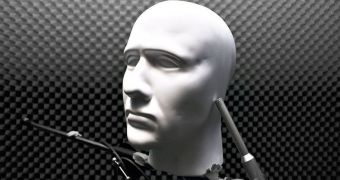Scientists have been debating the merits of installing more than one cochlear implant in deaf patients for quite some time, but thus far they've failed to reach a conclusion. The results of a new study may tip the balance in favor of implanting two such electronic devices.
A group of investigators at the Tel Aviv University (TAU) recently conducted an investigation on children that either lost their hearing early on in life, or were born deaf. The purpose of the study was to figure out whether a neural capability known as binaural processing can be restored.
Binaural processing literally means processing signal from both ears. Slight differences in sound properties as they enter each ear enable us to listen more easily, figure out where a sound came from, and isolate a single voice from a crowded environment.
Since the late 1980s, experts have been trying to determine if bilateral cochlear implants can restore this capability in deaf individuals. Traditional, only a single implant is inserted in one ear, while the other one is left unused.
In their latest investigation, TAU experts found that, in certain conditions, binaural processing can indeed be restored by implanting two prosthetic devices instead of one. The approach works for both deaf and hard-of-hearing patients, Science Blog reports.
The team says that the brainstem is responsible for merging sounds coming from both ears, and then creating a 3D landscape around us, on which the origins of those particular sounds are located.
After studying both patient groups, scientists found that kids who were not born deaf, but lost their hearing at a small age, could regain binaural processing capabilities if they received two implants.
On the other hand, children born deaf, who received a single implant, and then another one years later, could not process auditory signals in this manner. What this means is that “auditory experience prior to cochlear implantation is critical for binaural processing,” the team says.
Details of the new investigation were published in the journal Cochlear Implants International.
The work was led by Dr. Yael Henkin, who is based at the TAU Stanley Steyer School of Health Professions (SSSHP) Department of Communication Disorders. He is also the head of the Hearing, Speech, and Language Center at Sheba Medical Center.

 14 DAY TRIAL //
14 DAY TRIAL //